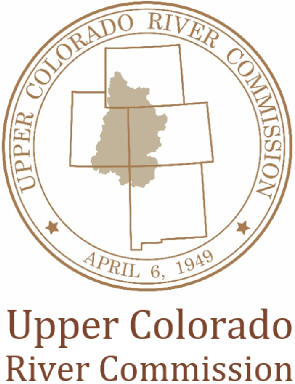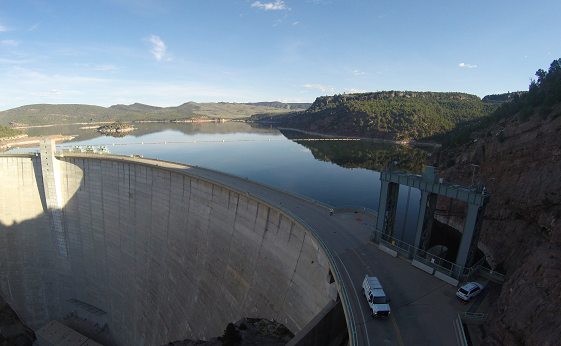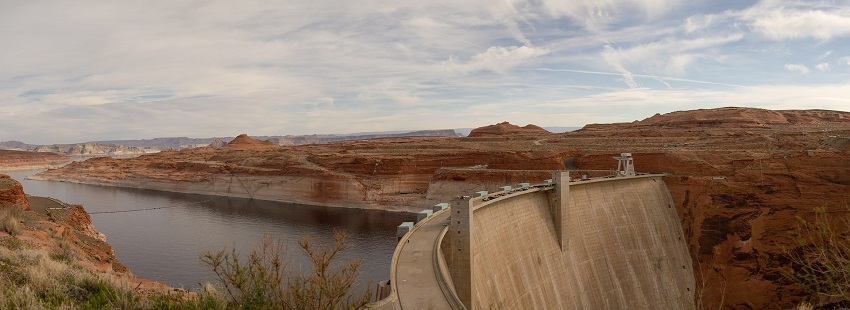
The Upper Colorado River Commission (UCRC) is an interstate water administrative agency established by action of five state legislatures and Congress with the enactment of the 1948 Upper Colorado River Basin Compact. The Commission’s role is to ensure the appropriate allocation of water from the Colorado River to the Upper Division States of Wyoming, Colorado, Utah, and New Mexico and to ensure water is released in accordance with the 1922 Colorado River Compact to the Lower Division States of Nevada, Arizona, and California and to the Republic of Mexico.
The Commission seeks to promote interstate comity, remove causes of present and future controversies, and to assure the storage of water and agricultural and industrial development of the Upper Basin. The Commission is comprised of one representative appointed by the Governor of each Upper Division State and one member appointed by the President to represent the United States.
THE UPPER BASIN 5-POINT PLAN…
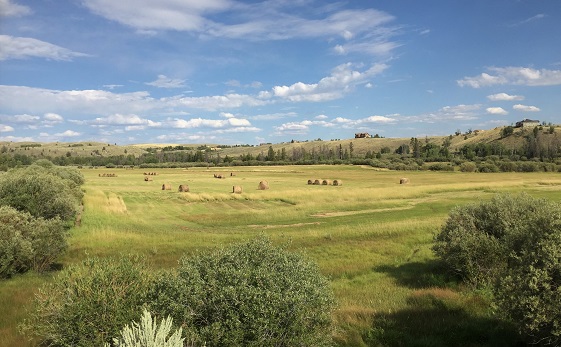
5-Point Plan and SCPP for 2024
The Upper Division States and the UCRC developed and adopted a 5-Point Plan, which put forward a number of activities to help improve the Colorado River System in conjunction with commensurate conservation activities undertaken in the Lower Basin. The first element of the 5-Point Plan is the re-authorization and re-initiation of the SCPP program with the subsequent steps of developing the agreements, legislation, and funding that would enable SCPP activities to take place in the Upper Basin in both 2023 and 2024.
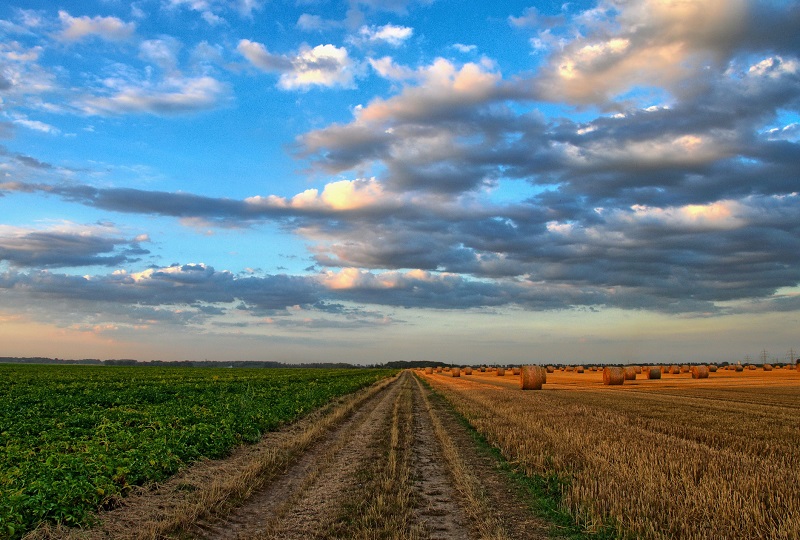
The Upper Colorado River Commission (UCRC) has undertaken an investigation into the feasibility of the implementation of a Demand Management Program in the Upper Basin as part of its Drought Contingency Plan (DCP). UCRC’s investigation covers a wide array of issues and analyses related to demand management and has put forward a centralized repository of extant demand management information, including resources and links back to intrastate investigation materials hosted by the Upper Division States.

Part of the Upper Basin’s 5-Point Plan calls for accelerated Drought Contingency Plan (DCP)-Related Implementation by expanding and enriching the measurement and monitoring network and instrumentation to better understand water supply and water use dynamics. UCRC and the Upper Division States are prioritizing Infrastructure Investment and Jobs Act (IIJA) funds to accomplish this ambitious goal, starting in 2023.
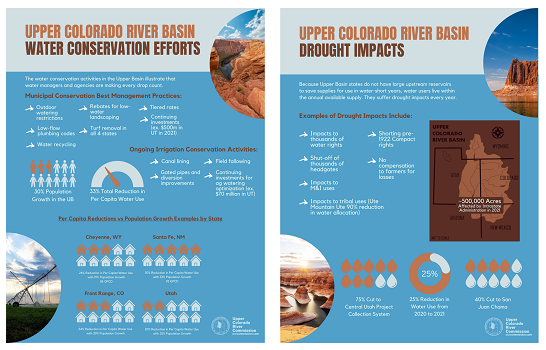
UCRC staff have compiled water conservation and water administration data available from the four Upper Division States to understand how ongoing drought affects water use and water users, and how the Upper Basin is responding by adopting aggressive and comprehensive water conservation measures and activities.
More information about Upper Basin Water Management Actions and Water Conservation Activities is now available in this Factsheet.
OTHER RECENT ACTIVITIES AND PROGRAMS…
The UCRC will conduct its 313th Special Meeting via Zoom Webinar.
Date/Time: September 17th, 2025, 9:00 am – 10:00 am MST

Article VIII(d)(13) of the Upper Colorado River Basin Compact requires the Upper Colorado River Commission to “make and transmit annually to the Governors of the signatory States and the President of the United States of America, with the estimated budget, a report covering the activities of the Commission for the preceding water year.”
Article VIII(1) of the By-Laws of the Commission specifies that “the Commission shall make and transmit annually before July 1 to the Governors of the states signatory to the Upper Colorado River Basin Compact and to the President of the United States a report covering the activities of the Commission for the water year ending the preceding September 30.”
This Seventy-Fifth Annual Report of the Upper Colorado River Commission has been compiled pursuant to the above directives.
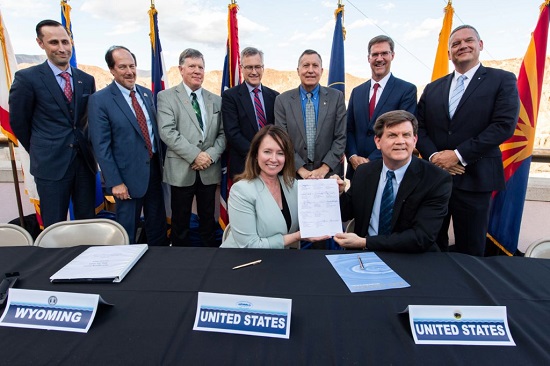
On May 20, 2019, the interstate Drought Contingency Plans (DCPs) agreements were signed and became effective for both the Upper and Lower Colorado River basins. The DCPs are designed to reduce risks to the Colorado River from ongoing historic drought exacerbated by the effects of climate change.
The Department of Interior was involved in the development of the DCPs and is a party to both the Upper and Lower Basin DCPs. The Republic of Mexico also has agreed to participate in drought contingency planning efforts through its commitments under Minute 323 to the 1944 U.S.-Mexico Water Treaty. (Photo credit: U.S. Bureau of Reclamation.)
